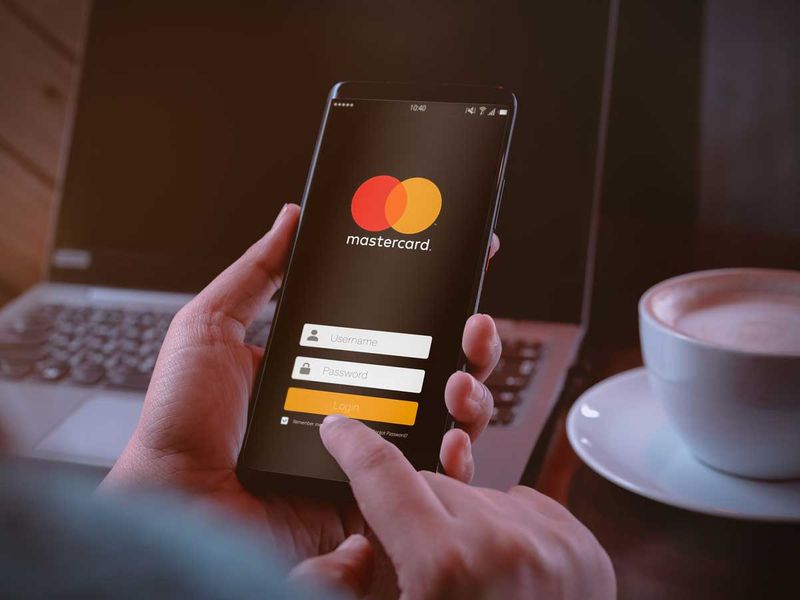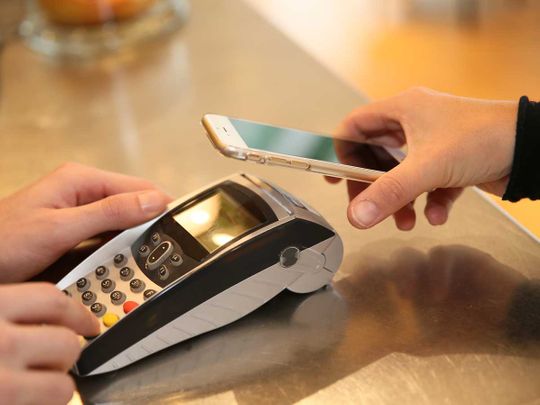Ordering food at home just got easier with a partnership between Mastercard and Delivery Hero to digitise payments, allowing hungry customers to pay for deliveries with a contactless payment or through a digital wallet.
The deal will also speed up payments for delivery riders and to restaurants, spending up supply chain settlement and boosting financial inclusion, according to a senior Mastercard executive.
The deal between the Mastercard and Delivery Hero covers its Zomato, talabat, and Hungerstation brands across eight countries in the Middle East and North Africa, including the UAE, Saudi Arabia, Kuwait and Egypt. In all, more than 20 million customers will be able to pay for food deliveries via contactless payment or through a digital wallet, which will have additional rewards and offers.
Even amid the rapid pace of digitisation in the Gulf, the deal with Delivery Hero stands out for its size and scope, covering more than 100,000 restaurants and more than 650,000 delivery riders.
“This partnership serves as an inspiration for us – no operation is too big or too small to start digitization; technology is helping us achieve things we could only dream of before,” says Amnah Ajmal, Executive Vice President of Market Development for Middle East and Africa at Mastercard. “Delivery Hero is huge, the leading food delivery online marketplace in our region, and we have digitised an end-to-end value chain for them.”
Riders to benefit
One major beneficiary of the new technology will be delivery riders themselves, explains Ajmal. “What is truly exciting is that it’s spearheading digital inclusion, because [for the first time] these 650,000 riders will get access to their earnings in almost real-time on their mobile devices,” she says.
Receiving their payment on a virtual card, riders will be able to pay for everyday purchases in stores. But having digital payments means that they will also be able to access a broader range of financial services, such as savings, lending and insurance products. “The whole world of financial services now opens up to them,” says Ajmal.
Partnerships like these are a great example how we can collaborate to drive innovation, but more importantly, innovation that’s really leading to a more inclusive world.
Earlier this year, Mastercard made a pledge to bring a total of 1 billion people and 50 million micro and small businesses into the digital economy by 2025, and Ajmal says this deal in particular – with the largest online restaurant delivery platform in the MENA region – will help that effort.
“Partnerships like these are a great example how we can collaborate to drive innovation, but more importantly, innovation that’s really leading to a more inclusive world,” she said.
Shift in consumer behaviour
It comes as consumer preferences skew sharply to digital, with growth in online and contactless payments accelerating across the year.
Data from Mastercard show that almost half of all spend in recent months was online, for every 100 dollars spent in MEA, half ($47) was spent on ecommerce in May compared to a third ($35) of this figure in February this year.

And when paying in person, most consumers prefer contactless, with 72 per cent of face-to-face transactions in the UAE in May of this year contactless, compared with 60 per cent in February and just 30 per cent in February last year.
Across just the first half of 2020, the share of orders paid online grew by over 40 per cent in the Middle East and Africa.
“We’ve seen phenomenal growth in contactless payments. Consumers want safe and clean payments,” explains Ajmal. “‘Clean’ and ‘payment’ are words that we never thought we would use [together], but this is the world that we live in,” she said.
Research from Mastercard shows that 54 per cent of consumers in the UAE believe the preference of ecommerce over in-store shopping is a trend that is here to stay, while another study revealed that more than 80 per cent of consumers plan to keep using contactless payments post-pandemic.
Apart from safety-considerations due to the pandemic, these technologies provide consumers with peace of mind, convenience, simplicity and security, says Ajmal. “This shift in consumer sentiment is not just a temporary shift, it’s here to stay,” she says.
Faster payments for SMEs

Image Credit: Shutterstock
While slow payments are a perennial problem for businesses in the UAE and MENA, it has become even more acute in 2020 as companies struggle with slower growth. “Supply chain payment inefficiency is a very big challenge and has been here for a long time, but the challenge is even bigger for smaller businesses who are really struggling to recover from the economic effects of Covid-19. And these inefficiencies, of course, are a drag on operations,” says Ajmal.
One of the key benefits that technology or digitisation can bring to a business is speed. With the current partnership, 100,000 restaurants will be able to quickly and securely settle payments with Delivery Hero and use the same virtual card solution to pay their employees’ salaries and make their supplier payments. Being able to eliminate or reduce cash handling helps save businesses time and money, and can help them access capital, which is major obstacle for many SMEs. Meanwhile, managers also gain access to data, analytics, and reporting that can help them run their operations more smoothly.
Benefits include lowering costs
Technical ease is a key benefit for partners who use the Mastercard payments platform. Once they have integrated with our gateway, businesses can in effect continue innovating without any interruptions or multiple reconnections, and to top it, they get access to a range of cyber risk and fraud assets through the platform, says Ajmal.
“Basically the entire supply chain gets digitised and we have displaced cash. Restaurants benefit because they can have a more efficient operation and focus on the consumer experience,” she says.
Ajmal says there is no better time for businesses to prioritize their digital transformation than right now, especially as consumers are shopping through digital channels. For example, in Saudi Arabia around two thirds of all SMEs have achieved at least 10 per cent growth in digital sales since the beginning of the pandemic.
Another advantage of digitisation is the use of a digital wallet that improves the customer experience through convenience while also helping to lower acquisition costs for the business and drive the lifetime values of customers up.
Partnerships will be key
Looking forward, Ajmal sees increased opportunities for further innovation and partnerships. “Today technology is really pushing us to ask the question ‘Why not?’ Everything is a possibility.”
Key to that are partnerships, and even with all of Mastercard’s scale and expertise, it seeks partners across the industry – with retailers, fintechs, telecommunication companies, small startups and governments.
“I see technology really as a driving force behind us getting to a more included and a more transparent world. And the way to go about it is to partner and collaborate – all of us are working with the same goal,” she concludes.




